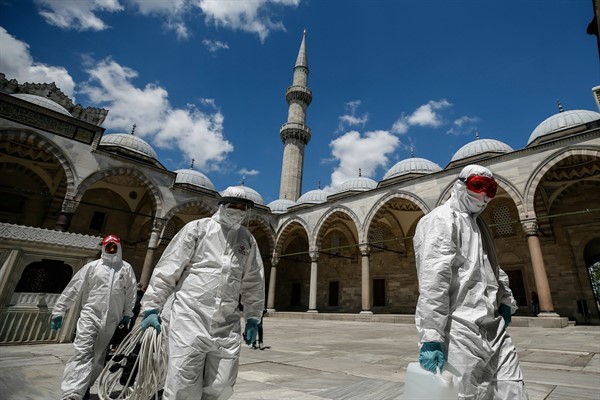In a national address earlier this month, Turkish President Recep Tayyip Erdogan announced the start of a “normalization plan” to gradually ease restrictions on movement that had ground much of Turkey to a halt amid the coronavirus pandemic. After spreading rapidly during March and April, infection and death rates have decreased recently in Turkey, which currently has nearly 160,000 confirmed cases of COVID-19, including about 4,400 deaths. Erdogan trumpeted his government’s success in tackling the public health crisis, but warned that “much harsher measures” will be required if cases spike again.
Pro-government media outlets insist that Turkey’s fight against the coronavirus is a model for other countries to follow and that the country is set to emerge from the crisis as a global leader, sharing its expertise with other nations and providing medical supplies and other support to some of the worst affected places.
But as Turkey slowly returns to normalcy, it faces a dire economy. Even before the coronavirus outbreak, the country was experiencing a severe downturn. Its currency, the lira, has tumbled against the dollar by as much as 20 percent since January, and most economists expect GDP to shrink by 2 to 5 percent this year. The International Monetary Fund has predicted that unemployment will rise to 17 percent.

